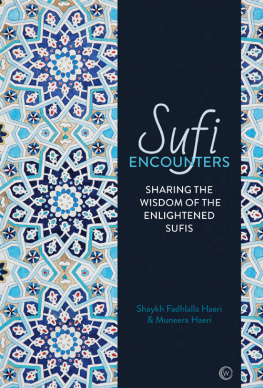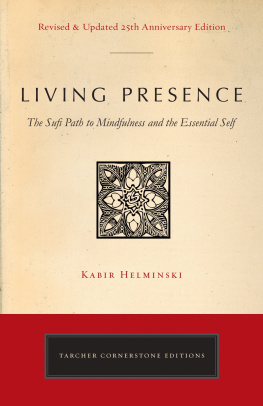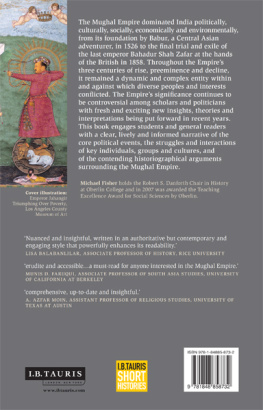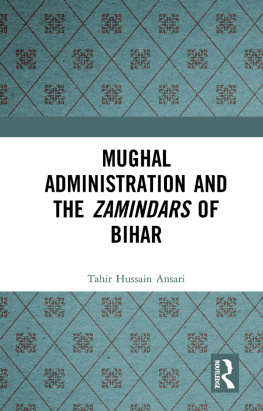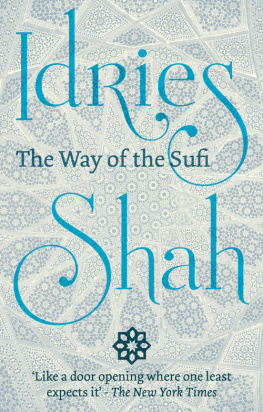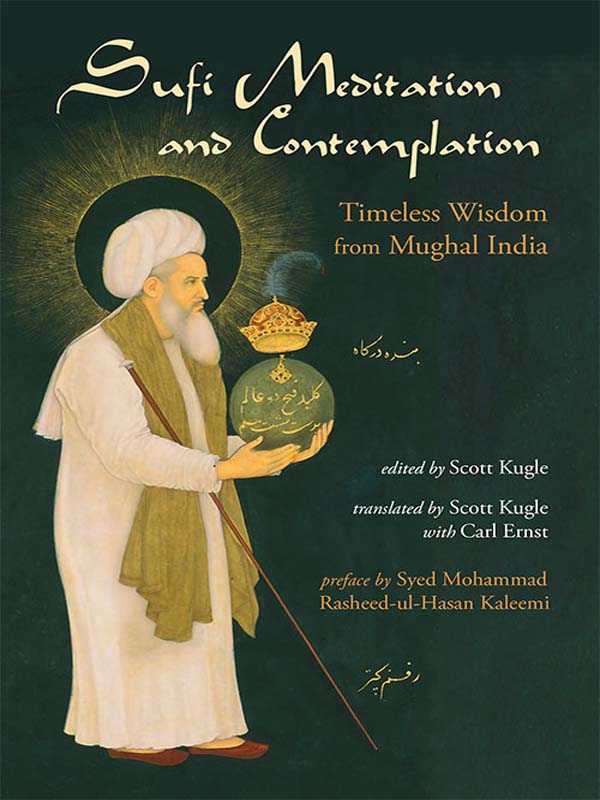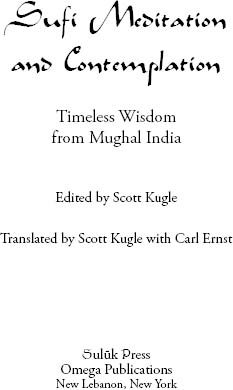Table of Contents
Treatise on the Human Body
Attributed to Muin al-Din Chishti
Treatise on the Human Body
Attributed to Muin al-Din Chishti
Selected Omega Publications titles
The Art of Being and Becoming
by Hazrat Inayat Khan
The Call of the Dervish
by Pir Vilayat Inayat Khan
The Complete Works of Pir-o-Murshid Hazrat Inayat series
The Hand of Poetry; Five Mystic Poets of Persia
by Hazrat Inayat Khan and Coleman Barks
The Music of Life; The Inner Nature and Effects of Sound
by Hazrat Inayat Khan
Life is a Pilgrimage
by Pir Vilayat Inayat Khan
The Man of Light in Iranian Sufism
by Henry Corbin
Song of the Prophets; The Unity of Religious Ideals
by Hazrat Inayat Khan
The Story of Layla and Majnun
by Nizami
We Rubies Four; The Memoirs of Claire Ray Harper
(Khairunisa Inayat Khan)
by Claire Ray Harper and David Ray Harper
For a complete listing of Omega Publications titles see
www.omegapub.com
Foreword
We have sent from among you a messenger
Recounting to you our signs
Teaching you scripture and wisdom
Teaching you what you never knew before
So remember me, that I may remember you
Be grateful to me and do not turn away
Quran, Surat al-Baqara 2:151-2
With these words, the Quran urges all who believe to remember God. We are so forgetful and distracted that we need a constant reminder to remember God. And we are often so selfish that we need some incentive, which the Quran in its merciful aspect gives to us: Remember me, that I may remember you. God promises to remember us, to the extent that we remember God. Of course, God is aware of us always through the divine attributes of being creator, sustainer and nurturer; if God were not aware of us we would simply cease to exist. Yet in the endless giving of divine bounty, God is not merely aware of us but actively remembers us through the divine attributes of being the One who gives and blesses, the generous and compassionate. And in the inscrutable hints of divine wisdom, God does not merely give but promises to give at our own request. So the Quran says, Remember me, that I may remember you to convey Gods promise to remember uswith all the powerful attention of the divine presenceat the instigation of our remembering Godwith all the weak distraction of our wavering concentration.
With this verse, the Quran lays out an Islamic charter for meditation and contemplation, which has inspired Sufis for over a millennium. God has sent from among us a messenger in Muhammad who repeats and affirms the message that has come to us countless times: that God is one, so people should unite in belief and ethics and love around that one Gods message. He recounts to us Gods signs that are words of scripture in a holy book and are also insights of wisdom in our conscience.
Among these signs that teach us in our ignorance is guidance to meditate, to find the skillful means to grow closer to Gods presence. This is not through acts of ritual and law, which show our dedication and obedience. This is through attitudes of yearning and self-surrender, which show our love and intimacy. Meditation and contemplation have no appointed time and no set formula. Like medicine, one takes them as one needs them, with the dosage and frequency determined by the intensity of ones illness and the stubbornness of ones constitution. Sufis have found in meditation and contemplation an antidote for self-righteousness, which is the sickness most often spread by religious institutions.
Indeed, Sufis believe that the Prophet Muhammad brought revelation that established the religion of Islam, and in that there are many blessings. But that same revelation reminds us that religion once institutionalized brings many dangerous diseases like hypocrisy, self-righteousness, fanaticism and the pious condemnation of others. Sufis believe that this same revelation also brought the cure for such diseases in the form of wisdom, self-scrutiny, humility and selflessness. The Prophet Muhammad by his own example taught the practical method to cure ones heart of such disease. Meditation is the way to instill the values in the heart, to such a depth that the heart itself is transformed. The heart then is not merely an organ in the body, and is not just ones own personal center; when properly activated through meditation, the heart opens up to reveal the very presence of God with one and with all.
To find this state of loving intimacy is the advice of the Quran when it says, So remember me, that I may remember you. And according to Sufi teachings, to meditate and contemplate is the way to draw God down to you and to allow yourself to be lifted up towards God. But to truly remember God is to utterly forget yourself! So if, for a moment or a minute, for an hour or a life time, one can forget oneself in all ones conceits and lusts and wants, then one truly finds ones original state of being with God. What Sufis teach in the way of meditation is just this: to forget oneself as opposing God and to find oneself in intimacy with God. Having set foot on this path, one finds oneself to be less and less, and one finds God to be more and more. Until nothing remains of the self except that which is with God and is of God. Remember me, that I may remember you.
The word in Arabic that means remembrance is zikr (as it is in Persian and Urdu and countless other languages used by Muslims). This phrase in the Quran really means Do my zikr, and this translation highlights that remembering God is a practice. It is something to do. One must learn to do it from one who already knows and set aside time to do it. It is a practical skill, and one must practice until perfect. It is like learning to play a musical instrument; one feels awkward or painful at first, but as it becomes habitual the awkwardness turns to beauty and the pain becomes pleasure. In this sense, Sufis have explored the practice of zikr and offered many skillful means of remembering God; these range from the subtle to the forceful, from the communal to the private, and from the abstract to the melodic. Like music that appeals to anyone whatever her or his native language, these means of zikr can appeal to any spiritual seeker regardless or his or her religion. Because this zikr is taught by Sufis who take their inspiration from Islam and Muhammad, their means of zikr is rooted in Islam and is colored by an Islamic style. But the application of this zikr is universal, as it addresses our weakness and distraction as human beings, and this distress is not limited to Muslims. Sufis urge us to learn zikr as one learns a practical art, to discover its virtues and to integrate them into ones life.



